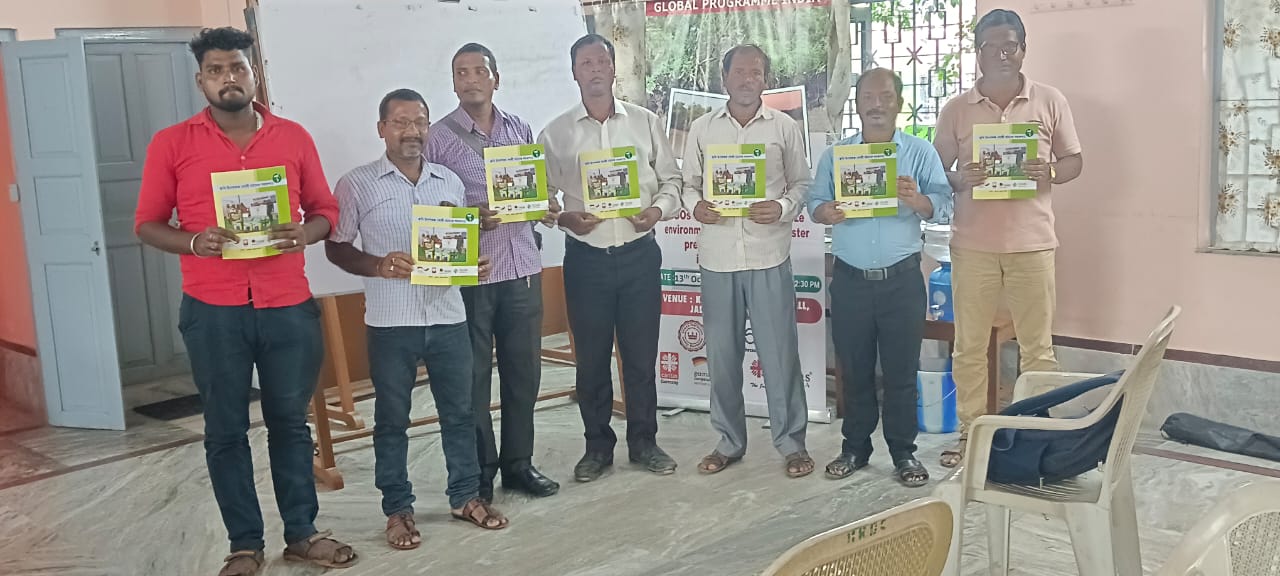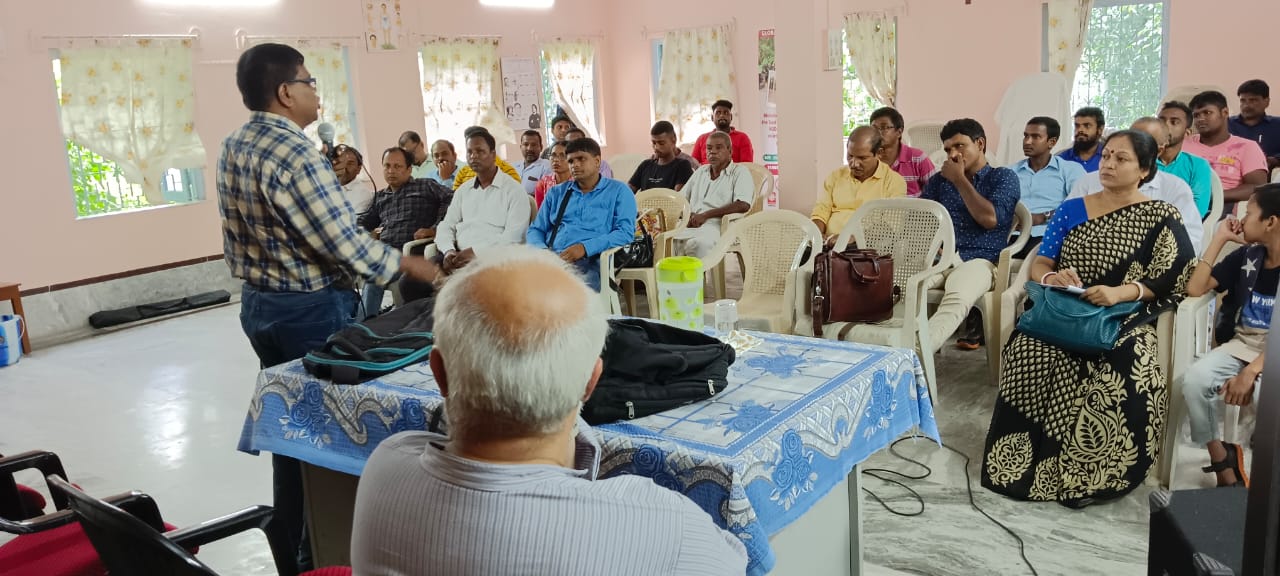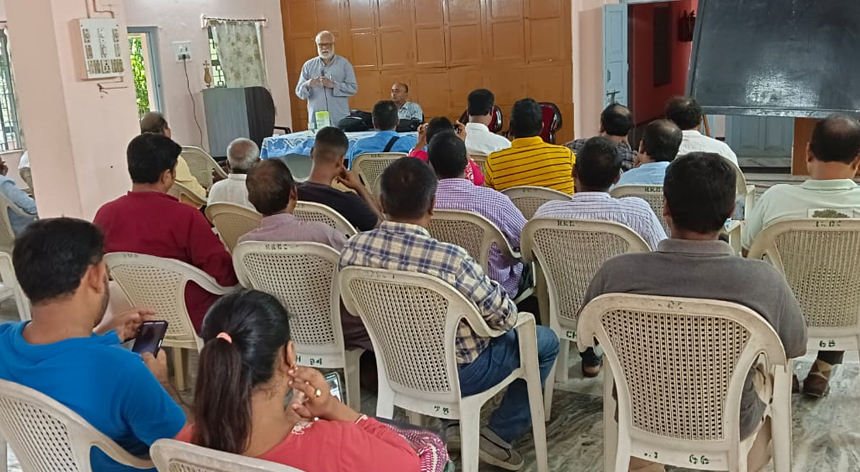The International Day for Disaster Risk Reduction (IDDR) is a global event that aims to promote the culture of disaster prevention and preparedness among people and communities. The theme of IDDR 2023 is “Fighting inequality for a resilient future”, which focuses on the inclusion of persons living with disabilities in disaster risk reduction efforts.

Caritas India observed the IDDR on October 13, 2023, in Sundarban, a region that is vulnerable to natural disasters such as cyclones, floods, and salinity. Caritas India’s local partners, Society for Professional Action in Development (SPADE) and Palli Unnayan Samiti Baruipur (PUS), organized various activities to raise awareness and engage the stakeholders on disaster risk reduction and social safety net.
The event was attended by more than 37 representatives from various NGOs working in Sundarban, such as Goonz Foundation, Arpan Mahila Society, Baikunthapur Tarun Sangha, Joygopur Youth Development Centre, Palli Unnayan Samiti Baruipur, Professional Action in Development, Kultali Sabuj Sangha, Mukti Foundation, Sundarban Samaj Kalyan Samiti, and Haldarchak Chetana Welfare Society. The event was held under the Global Program India, a joint initiative of Caritas India and Caritas Internationalis to enhance the resilience of the communities in Sundarban.

The event featured a poster exhibition that showcased the We4Resilience posters on disaster risk reduction and social safety net. The posters highlighted the importance of community participation, gender equality, climate change adaptation, livelihood diversification, safe migration, and disability inclusion in building resilience. The participants also received booklets on Farmer Producer Company (FPC) as a resilient livelihood option and safe migration guidelines.
The event also included a group discussion facilitated by Mr. Asish Biswas, a veteran environment activist and a resource person for Caritas India. The participants discussed the issues and challenges their respective working areas faced and suggested possible solutions. The main issues identified were water scarcity, salinity intrusion, land erosion, lack of infrastructure, poor health services, and human-wildlife conflict. The participants also presented their outcomes to the group and received feedback from Mr. Biswas.
One of the key recommendations made by Mr. Biswas was to identify the tube wells and water sources located in low-lying areas and submit the list to the Public Health Engineering Department (PHED) for further action. He also suggested that all the NGOs working in Sundarban should collaborate and coordinate with each other to avoid duplication and ensure the effective implementation of disaster risk reduction interventions.
The event concluded with some action points for the future, such as celebrating the IDDR every year, holding regular meetings between the government and the NGOs, and identifying the water sources that need to be repaired or relocated. These steps would help to improve the disaster risk reduction efforts in Sundarban.
The IDDR celebration was part of Global Programs’ ongoing work in Sundarban. The program aims to improve the quality of life of the people living in Sundarban by enhancing their adaptive capacity, strengthening their social protection mechanisms, promoting their sustainable livelihoods, and empowering them to participate in decision-making. The program also facilitates accessing the entitlements of the people living in Sundarban at various levels.


Leave a Reply